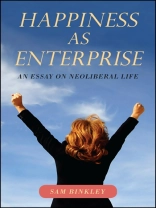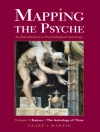Examines the contemporary discourse on happiness through the lens of governmentality theory.
Recent decades have seen an explosion of interest in the phenomenon of happiness, as evidenced by self-help books, talk shows, spiritual mentoring, business management, and relationship counseling. At the center of this development is the expanding influence of ‘positive psychology, ‘ which places the concern with happiness in a new position of professional respectability, while opening it to institutional applications. In settings as diverse as college education, business, military training, family, and financial planning, happiness has appeared as the object of a new technology of emotional self-optimization. As such, happiness has come to define a new mentality of self-government-or a ‘governmentality’ as the concept is developed in the work of Michel Foucault-one that Sam Binkley demonstrates is aligned closely with economic neoliberalism. Happiness as Enterprise blends theoretical argumentation and empirical description in an engaging and accessible analysis that brings governmentality theory into contact with sociological theories of practice and temporality, particularly in the work of Pierre Bourdieu. This book invites readers not only to consider the new discourse on happiness for its relation to contemporary formations of power, but to rethink many of the assumptions of governmentality theory in a manner sensitive to the mundane practices and everyday agencies of government, and the unique and specific temporalities these practices imply.
Tabella dei contenuti
Acknowledgments
Introduction: The New Happiness
Part I: The Hinge of Power
1. To Govern Happily
2. The Emotional Fold
Part II: When Will I be Happy?
3. Time Within Time
4. Habits of the Happy
Part III: The Work of Neoliberal Governmentality
5. The Happiness of All and Each
6. Interiorities of Social Government
7. The Alchemy of Neoliberalism
Conclusion: Against Asphyxiation
Bibliography
Index
Circa l’autore
Sam Binkley is Associate Professor of Sociology at Emerson College. He is the author of Getting Loose: Lifestyle Consumption in the 1970s and the coeditor (with Jorge Capetillo-Ponce) of A Foucault for the 21st Century: Governmentality, Biopolitics, and Discipline in the New Millennium.












